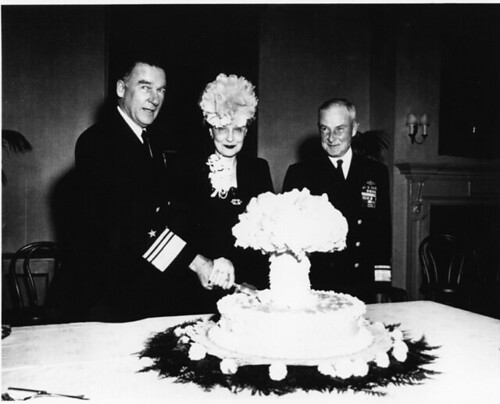One new thing I have been looking to incorporate into this blog for a while has been an increase in writing. Because, well, I just like writing about music. One of the outlets of which I am calling “Beauty in the Breakdown,” wherein I look in depth at some of the long-considered classics in the Western music cannon then offer some commentary on their significance.
For the first installment I will be looking at The Beach Boys’ “God Only Knows,” long-touted as one of, if not the, quintessential American pop song.
A Little Background
Recorded in March of 1966 for the album Pet Sounds, “God Only Knows” is the opus of Brian Wilson, who handled all of the orchestration and melodic mastery, and Tony Asher, a lyricist who helmed much of the lyrical content on the album.
The song is sung by Brian’s brother, Carl, though originally intended for Brian. Carl was later chosen because both Brian and Asher felt he could express the depth of the song more emphatically. And, in my opinion, they were right.
Although only reaching #39 on the American pop charts, the song has been widely regarded as a masterpiece by Rolling Stone, Pitchfork Media, and as evidenced by the dozens upon dozens upon dozens upon dozens of cover versions.
Typical of numerous Beach Boys songs (and Pet Sounds songs in particular), “God Only Knows” features unusual instruments in pop music, most notably French Horn, which opens the song and forms the melody.
Fun fact: The song was the first in popular music to use the word “God” in its title, a fact that a) may have contributed to its lackluster chart performance and b) caused much debate among its creators.
The Breakdown
(Note: I am not the most knowledgeable musician. So if I mess up a music term or 2 please don’t hold it against me.)
0:00-0:17: The melody and heartbreak
The song opens up with a French Horn (Alan Robinson) fluttering over a banging harpsichord (Larry Knechtel, of Bread), the melody of which has been traced to the French Horns in Wagner’s “Hagen” motive (most notably movements 1 and 13), though I am a firm believer that it just spawned organically in the left side of Brian Wilson’s brain. The French Horn’s melody is both uplifting and optimistic, as only love can be. Then, at 0:08, the upright bass (Lyle Ritz) comes in with a choppy and descending riff, which qualifies the horn’s optimism with bittersweet sincerity – which is essentially what the song is about.
0:18-0:41: Verse I
I may not always love you
But long as there are stars above you
You never need to doubt it
I’ll make you so sure about it
God only knows what I’d be without you
Of course, one of the most memorable parts about this song is the seemingly contradictory opening line, with comes off like a rather callous way to open arguably the greatest love songs of all time. Is it, though?
This may shoot down my romantic credentials a little, but to me the greatest part about love is that it is a feeling. It churns your heart into a bloody mass and it clouds your judgment; but it is the greatest sensation in the world. And, like all feelings, love can be temporary. “I may not always love you,” but in this moment, I can’t imagine myself not loving you. That is the kind of love I would want.
The line is just so honest. And isn’t honesty one of the cornerstones of love in the first place? If Wilson/Asher came out and made absurd accusations this song would never be where it is. For example:
I think unrealistic love isn’t endearing, which makes “God Only Knows” such a great love song. And I think Larry David would agree with me.
0:42-1:03 Verse II
If you should ever leave me
Though life would still go on believe me
The world could show nothing to me
So what good would living do me
God only knows what I’d be without you
This verse, of course, continues with the theme of honest love. But, judging by the first verse, one has to question the sincerity of the second. Essentially, what the verse is saying is that, “Yeah, if you leave it’s going to suck, but I’ll live, though it’ll be a meaningless life.” From the first verse we get the impression that this figure is head over heels in love, but knows that sometimes love ends and we move on; sure it hurts for a while, but eventually life still goes on, believe me. The second verse feels more lovesick and less pragmatic. But then again, is that really a bad thing?
And once again, the verse is closed with the non-chorus refrain, “God only knows what I’d be without you.” Which is, in my opinion, the most beautiful line a love song has produced. And, makes any doubts in our figure’s head sort of null, because in this moment his heart completely belongs to this love.
1:04-1:27 Brian Wilson Arranging
From 1:04 to 1:28 is Brian Wilson flexing his competency as a composer. This section is filled with stunning harmonies (obviously Wilson’s strong suit) and interesting percussion (which was more prevalent on SMiLE). Also, in this section at 1:18, a line in the sand is drawn. To me, and to a lot of people, I believe, the flow and aesthetics of the song is tarnished a little bit with the backup vocals’ “bum-pa-bum-pa-bah-bah…” which, though fits in the song, comes across as a little hacky, and emblematic of the Beach Boys’ more surf-influenced earlier ten albums. But, not everything is perfect, as this song can surely vouch.
1:28-1:59 Verse II Redux
Once again we are hit with the second verse. And, given light of my earlier analysis, because this verse is repeated and not the first, perhaps our figure is more lovesick than he lets on. Maybe he is in a state of realistic co-dependence, where, though the love might not always last forever, he can’t bear the thought of its end. One of the great aspects of this verse and pseudo-chorus is that, at 1:54, we get the triumphant return of the French Horn, which will inevitably carry us through to the end.
2:00-2:52 God only knows what I’d be without you
The last 52 seconds of the song are perhaps the most beautiful. They combine Wilson’s amazing harmony and melody with the repetition of “God only knows what I’d be without you.” If these words don’t make you appreciate or evaluate the love you have, or long the love you don’t, then maybe you aren’t cut out for love in the first place.
And we fade out.
The Analysis
Now, I always appreciate Pitchfork’s constant striving to put their songs in a sociopolitical context; which is why it is impressive that they chose “God Only Knows” as their #1 song of the ‘60s over something more politically charged or socially significant.
But the fact of the matter is that a song’s/band’s/album’s relevance doesn’t need to be linked to a movement. Rather, it can be tied to the human experience and reflected in the melody and lyrics. Brian Wilson and Tony Asher combined to produce the most primal interpretation of the most valued human emotion: love. And, even if they didn’t succeed entirely, their bittersweet honesty evokes nothing less than that guttural longing, or that warm appreciation of a love so great it is hard to imagine.
Bonus Videos:
Here are just a couple great uses of "God Only Knows" in pop culture:
and
Finally; this song is said to have been directly influenced by "God Only Knows," one of Paul McCartney's favorite songs of all time. And it's pretty obvious.






